Northeastern community, and students at universities around the world, stand in solidarity with people of Iran
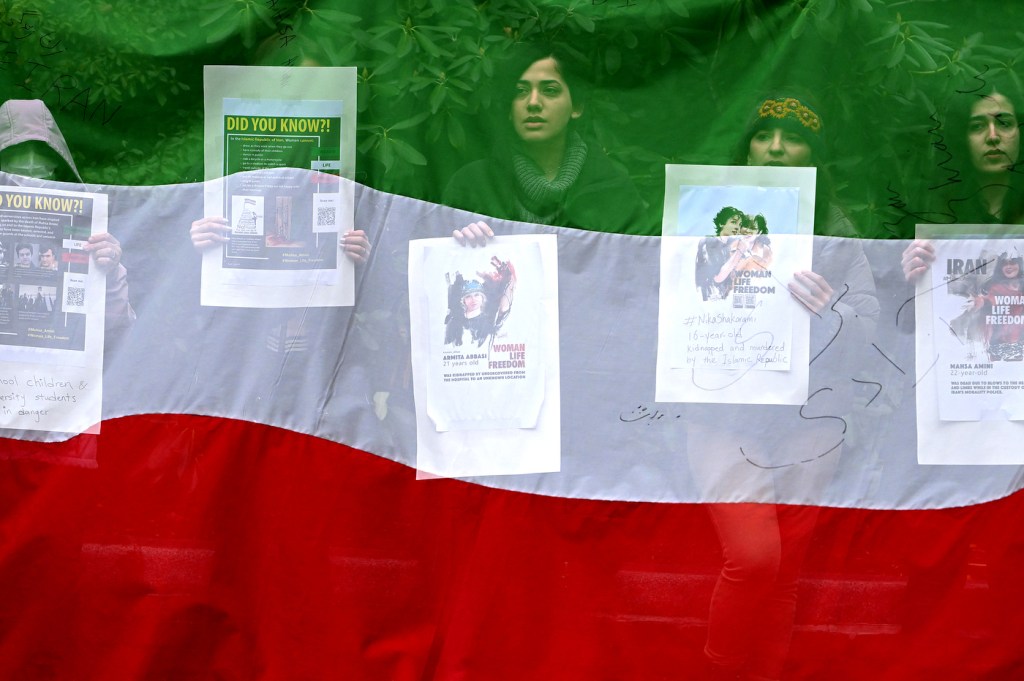
Parisa Ghanad’s T-shirt read, “Women. Life. Freedom.” It was covered in red paint, which was made to look like blood.
The Northeastern student from Iran has seen firsthand how women are oppressed in her home country, she said.
Now, Ghanad is part of what she calls a “feminine revolution” to overturn the government.
“This revolution is something that was started by a woman, and it’s led by women of Iran,” she said at a Wednesday rally organized by the Iranian Student Association of Northeastern University. “So that’s why we call it a feminine revolution.”
Ghanad was one of the members of the Northeastern community who spoke out against what they called the “totalitarian and murderous regime of the Islamic Republic” in Iran.
Students participated in similar events at more than 100 universities around the world, urging others to join them in solidarity with the people of Iran.
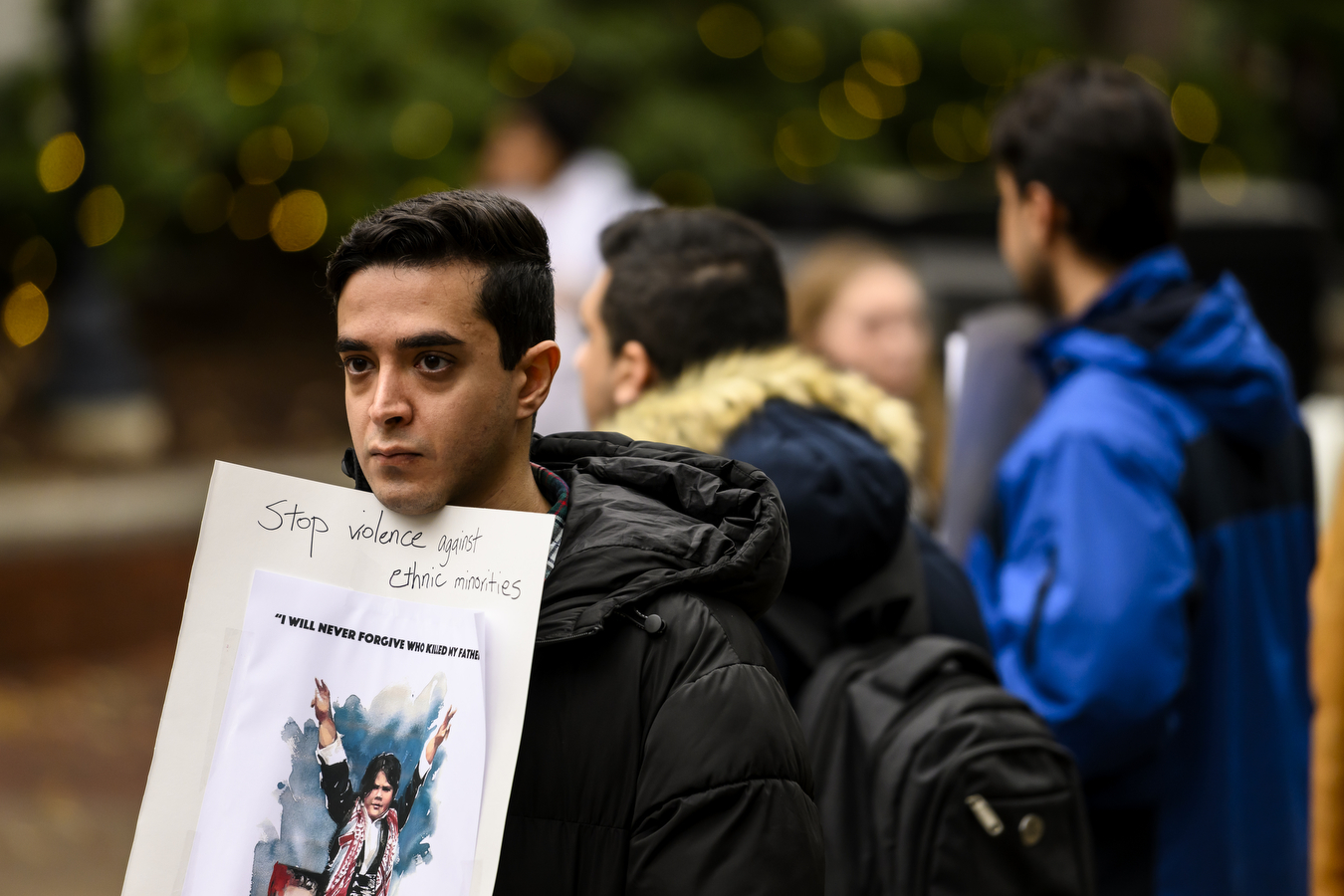
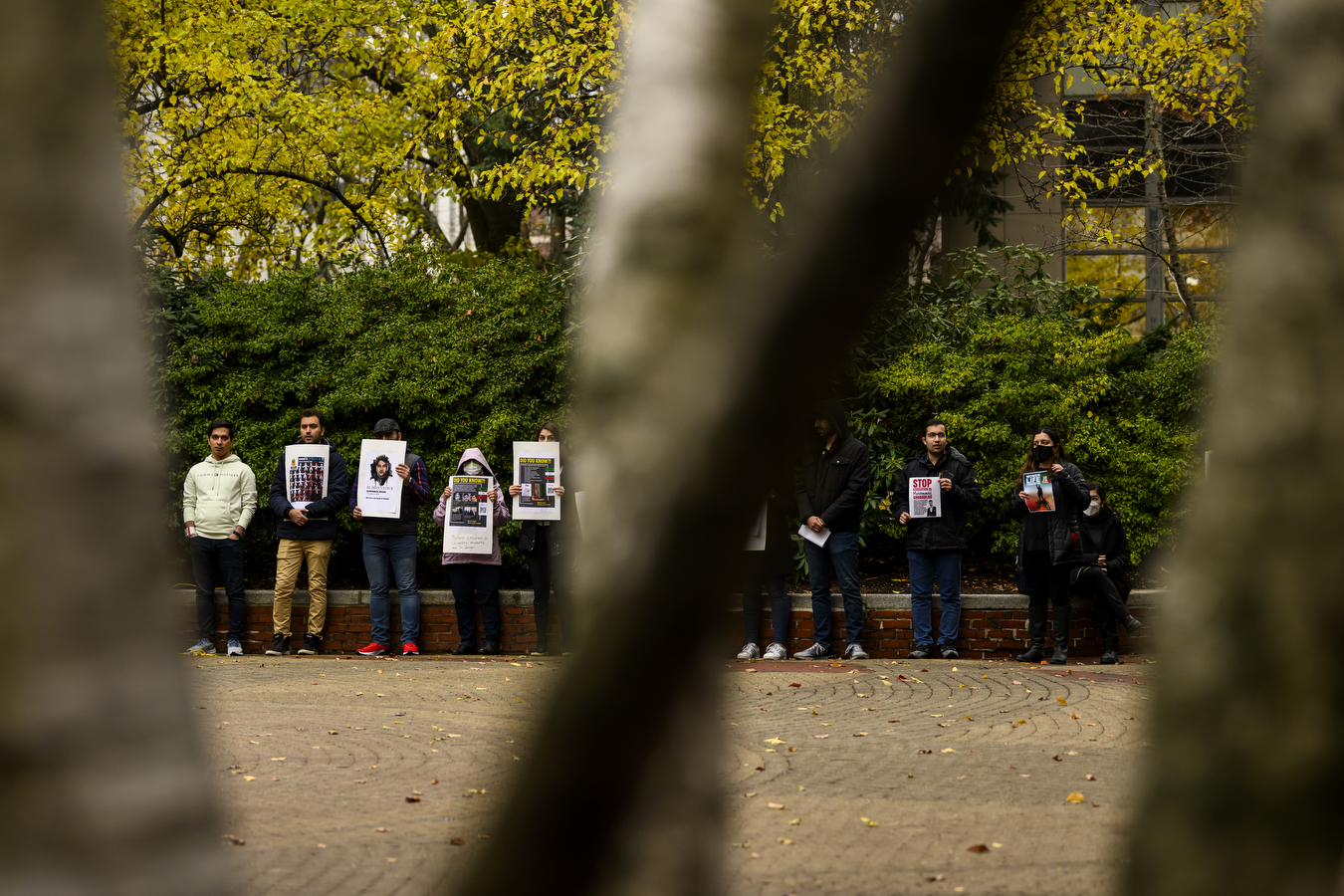
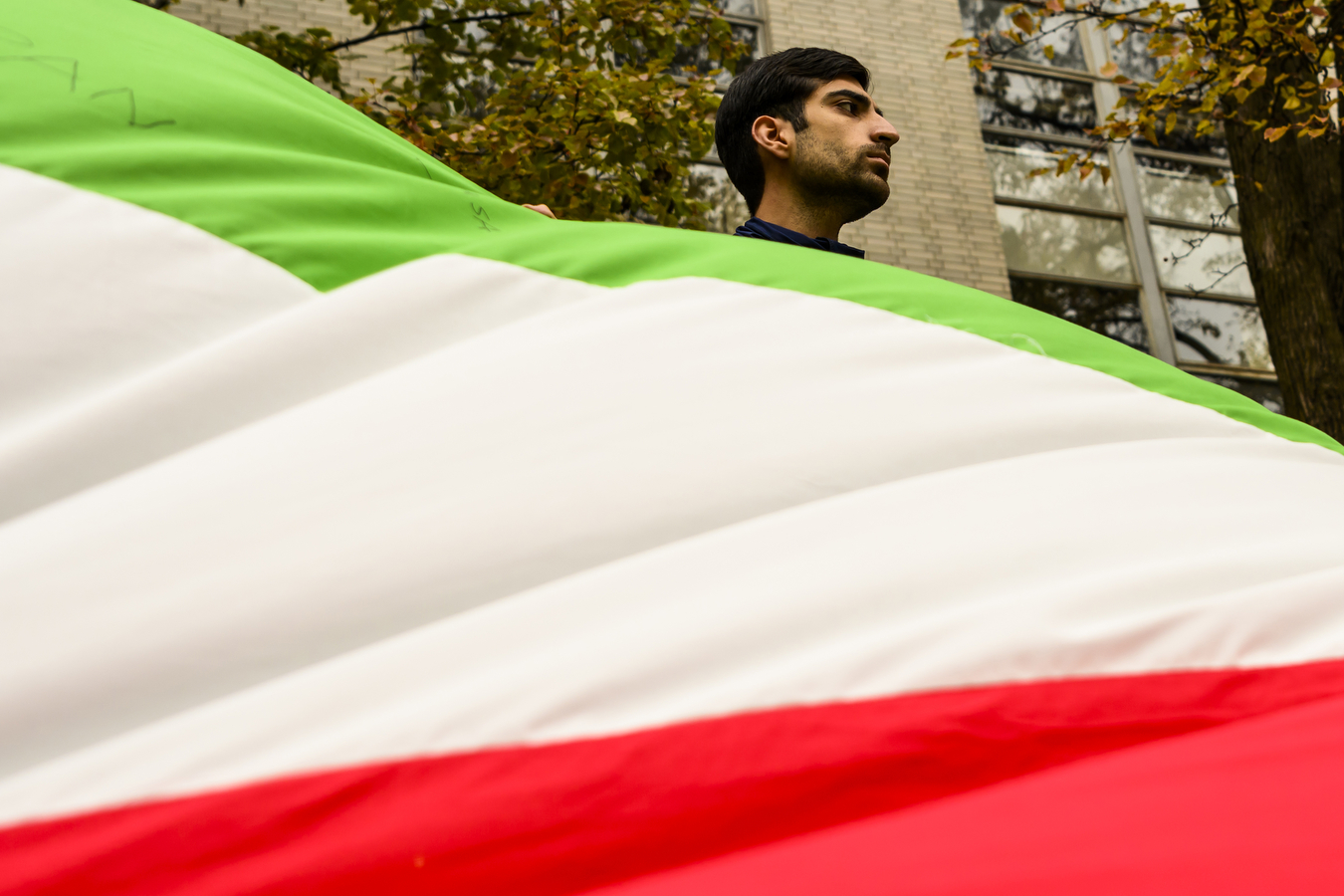
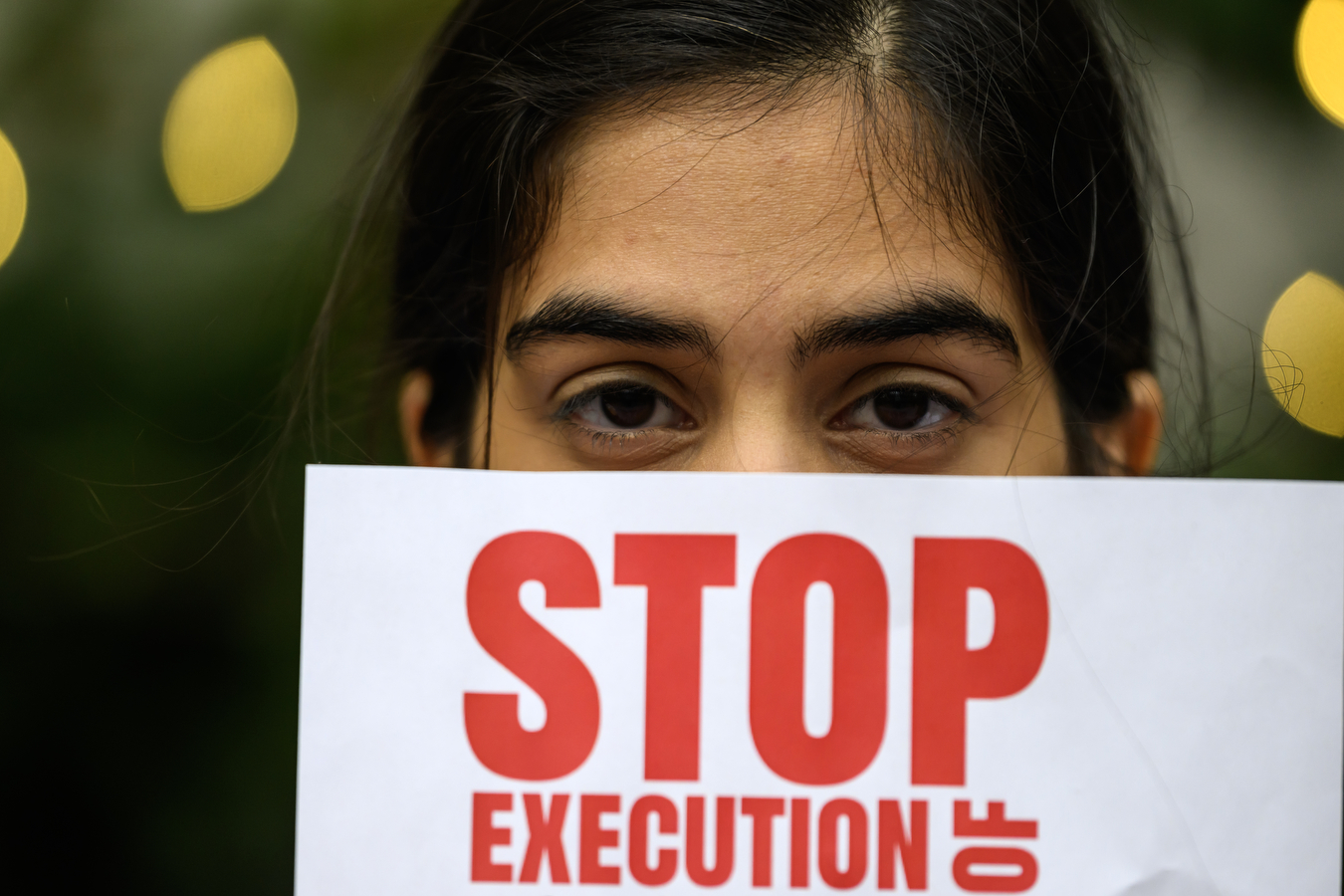
There, anti-government protests have erupted over the past two months, sparked by the death of Mahsa Amini, who died after being detained by police in September. Amini was arrested for not wearing a hijab properly in public.
Since then, reports have emerged of deadly crackdowns in what the United Nations has called “a full-fledged human rights crisis.”
Protesters have been arrested and lethal force has been used against unarmed people and bystanders, according to the U.N.
U.N. High Commissioner for Human Rights Volker Türk said on Nov. 24 that 300, including at least 40 children, is a “conservative estimate” for the number of deaths. In addition, he said, approximately 14,000 people have been arrested, and prisoners are being tortured and sentenced to death.
At Northeastern’s Boston campus, students lined up outside of Snell Library and held up signs with photos of people who were reportedly killed in the protests, including a 19-year-old chef who died while in police custody, and a mountain climber who was shot and killed while protesting.
They also raised an Iranian flag without the Islamic symbol; on it was written “Free Iran” and Amini’s name. They chanted the slogan of the movement, “Women. Life. Freedom.”
The situation was deeply personal for many of the protesters.
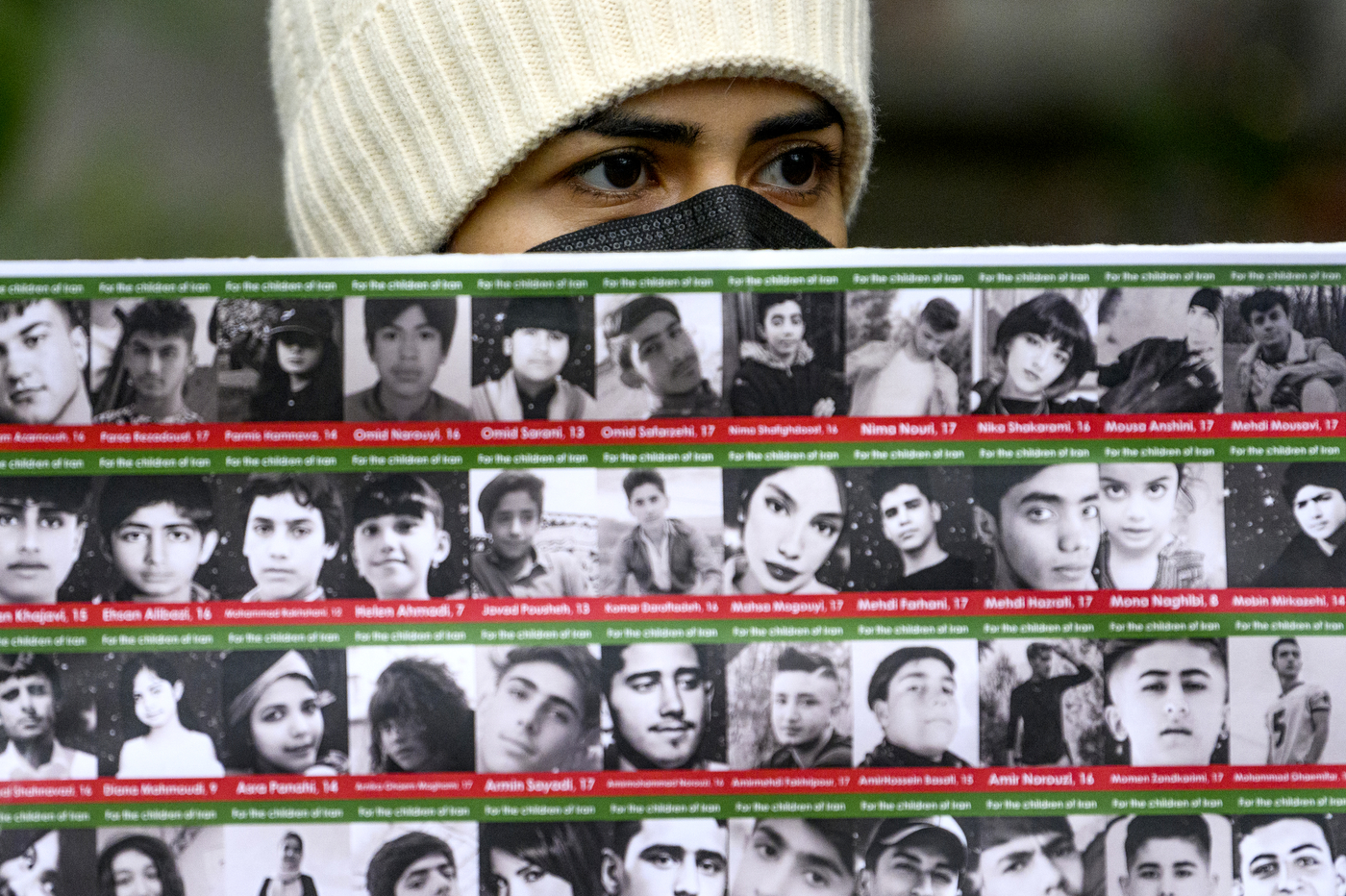
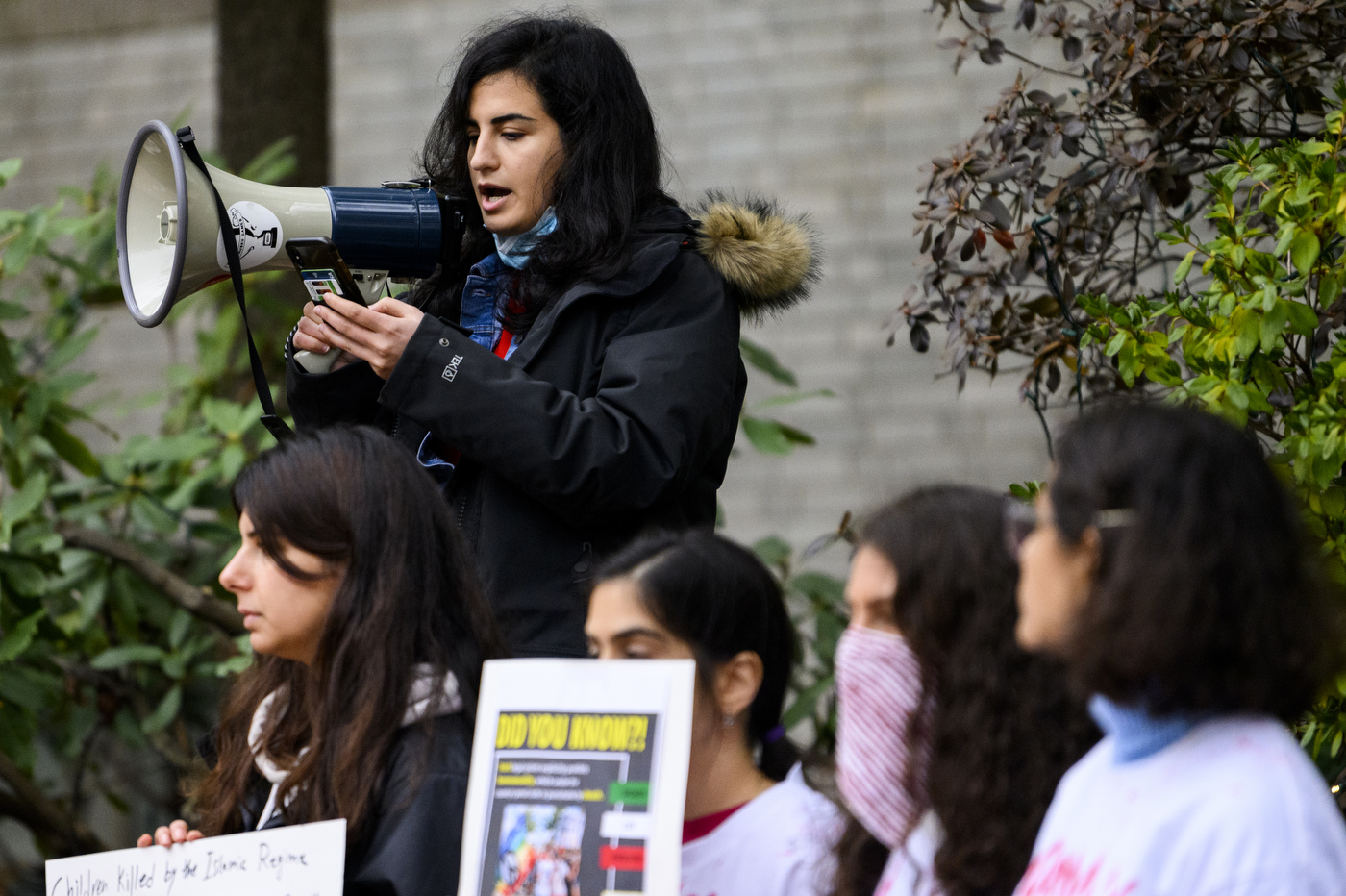
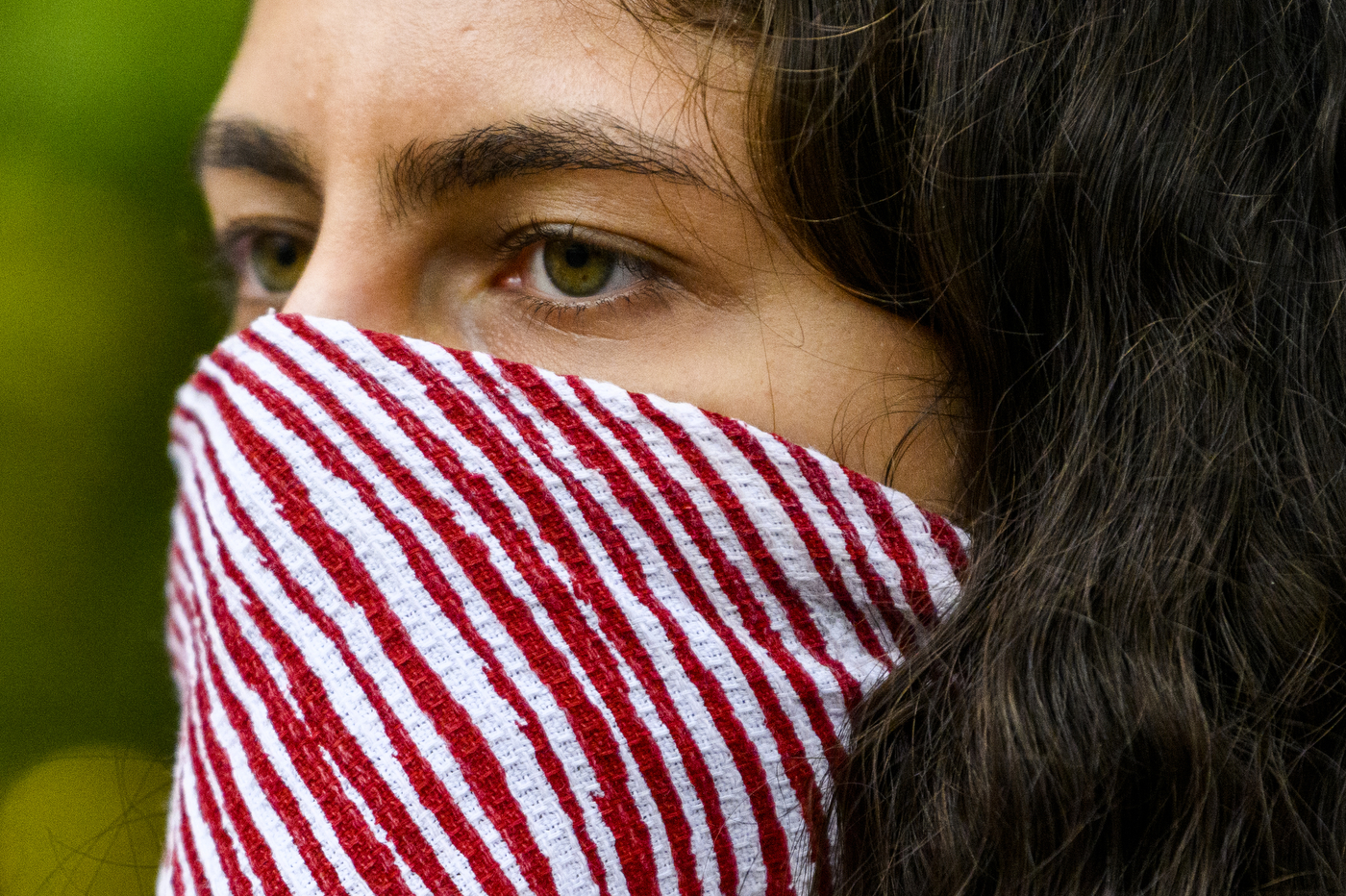
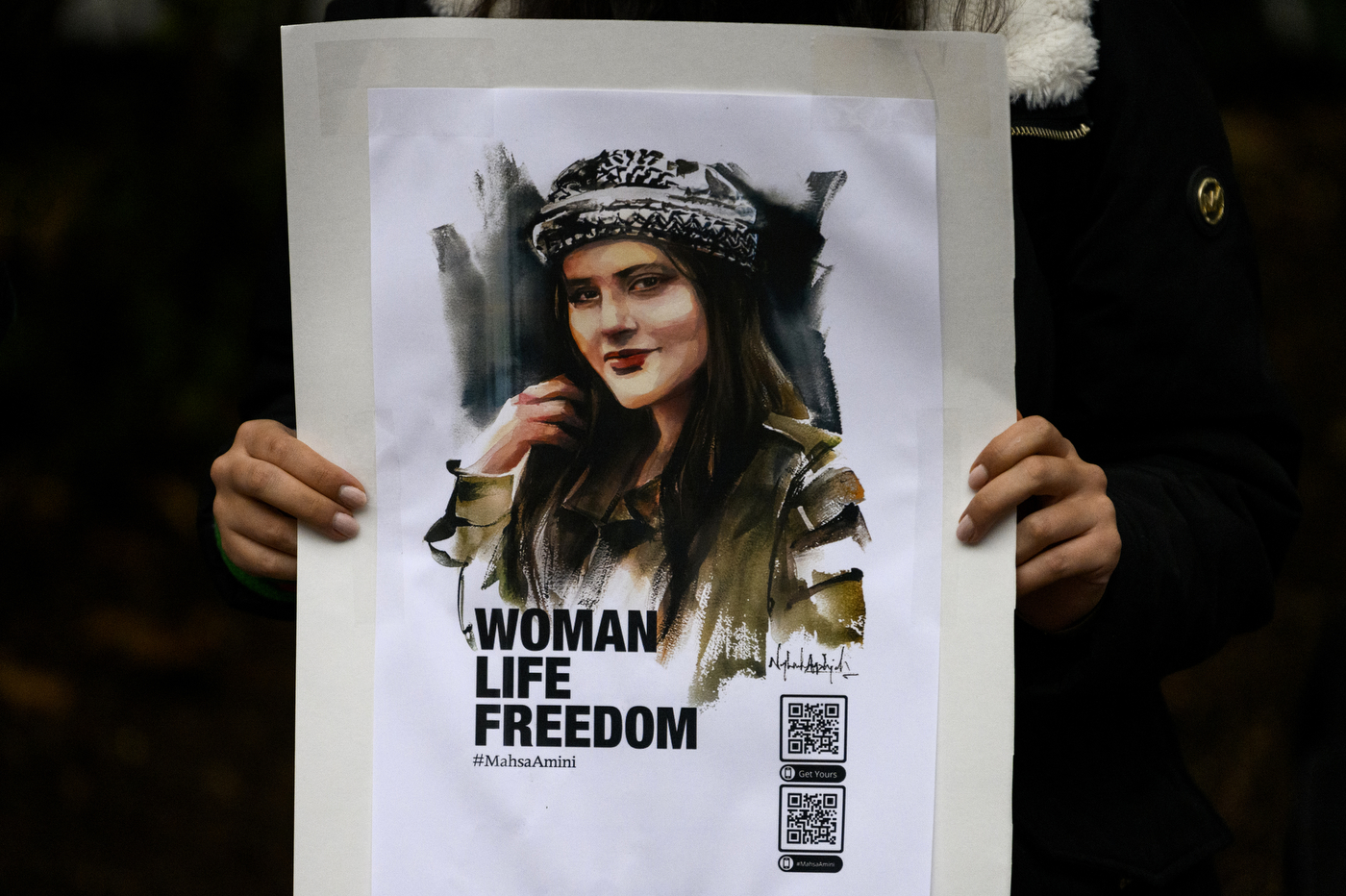
Like Ghanad, Northeastern student Amin Pishehvar lived in Iran and his family remains there, though at the moment he is having trouble communicating with them. “The government has shut down the internet,” he said.
“Also, they’re living in daily terror because you don’t know when the government would approach them to arrest them or kill them,” he said.
Northeastern Ph.D. student Ali Fallahi lived in Iran for 18 years with his family, but now, due to the political situation there, he says, it’s too difficult to go back. He hasn’t seen his parents in six years.
“There are issues with me being under the risk of facing some problems when I go back there, and also problems getting back into the U.S.,” he said. “It’s been quite difficult for my parents to come and visit, too.”
Second-year Ph.D. student Farnaz Nouraei has experienced loss as well. Nouraei’s entire family lives in Iran, and a family member of a close friend died on Ukraine International Airlines Flight 752, a plane that was shot down by an Iranian missile in January 2020. The government initially denied involvement and families of the victims have faced significant obstacles as they seek answers.
Nouraei has been deeply affected by reports that children have been killed, she said. “We are seeing 10-year-olds, 7-year-olds, getting killed by this regime, and we can’t take it anymore,” she said.
She hopes to raise awareness of the situation in the U.S. It’s especially important to do so since, as Farnaz Nouraei said, the news coming out of Iran is not accurate.
“We just need all the politicians and everyone in the world to know what’s happening, especially because the state media of Iran is full of propaganda,” Nouraei said. “They just lie all the time.”
She urges U.S. citizens to talk to their elected representatives about the situation, to sign petitions and to educate themselves.
“We want the world to know,” said Nazanin Bani Amerian, a postdoctoral teaching associate at Northeastern. “We want your world to be on the side of Iranian people, on the side of Iranian women, on the side of Iranian students.”
Most importantly, as Fallahi made clear, they want to see a new government.
“It’s not a complaint. It’s not a request for reform from the government,” he said. “This is a revolution.”
Sabira Kahlili contributed to this report. For media inquiries, please contact media@northeastern.edu.





